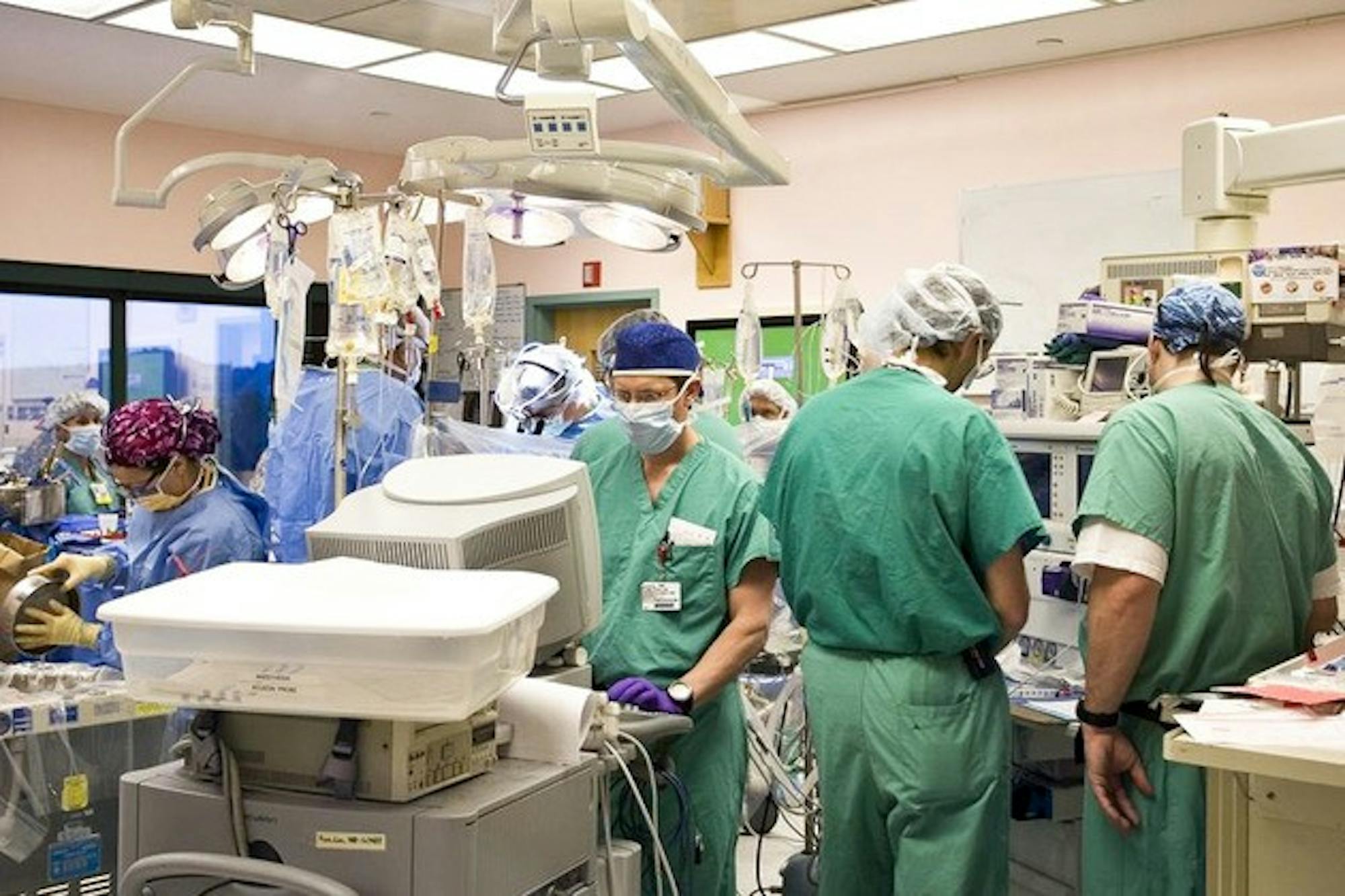Partnering with Practice Greenhealth, a national organization that promotes environmental sustainability in hospitals and corporations, DHMC endorsed the Greening the Operating Room initiative in January. Practice Greenhealth launched the program in Spring 2010, according to its website.
DHMC's involvement in the program allows the medical center to collaborate with other hospitals to find innovative ways to save money and reduce waste, according to John Leigh, DHMC's manager of waste and recycling.
"It's an opportunity for us to get a little more credit for the good deeds that we have accomplished," Leigh said. "It means that we're going to have a better channel of communication for learning from our peers who are on the cutting edge of sustainability and health care in the country."
DHMC has already implemented medical-plastic recycling and single-use device reprocessing, which allows physicians to reuse equipment such as blood pressure cuffs and forceps, according to Cecilia Lynn, director of sustainability education and training at Practice Greenhealth. DHMC also implemented the use of LED lighting to conserve energy and fluid waste management systems to better handle the disposal of bodily fluids, Lynn said.
These practices have made DHMC a leader in the transition to environmentally friendly operating rooms, according to Lynn.
"[DHMC] is one of our premier award-winners," she said. "They've won the environmental leadership award numerous times and have really been at the forefront of developing best green practices."
Operating rooms can generate between 20 and 33 percent of the total waste volume of the entire hospital, according to a 2009 study by Santa Clara Valley Medical Center physician Roy Esaki and Stanford University School of Medicine professor Alex Macario.
Given the amount of waste generated by operating rooms and the costs associated with them, there are "a lot of opportunities to go green," Lynn said.
This shift toward less wasteful practices will "absolutely not" interfere with the normal day-to-day work of operating rooms, according to Leigh.
"We fully realize that the quality of patient care comes first, no doubt about it," he said. "Any work that we're going to do is going to be in close collaboration with the nursing team and the surgeons, who are definitely supportive of reducing the environmental impact from their practices."
After observing the "staggering" amounts of bloody gauze and other trash generated by the hospital's operating rooms, many physicians approached Leigh to ask how they could help reduce the waste, Leigh said.
The individuals working in the operating rooms are the "most excited" about the new initiative, according to Lynn. "We've had nothing but universally positive responses to this from the O.R. staff because many have seen the dramatic amounts of waste being created and have felt very powerless to make changes in that space," she said.
In order to ensure the smooth integration of green practices into the operating room, DHMC plans to seek the input of multiple groups within the hospital, including surgeons, physicians, nurses and medical equipment suppliers, according to Leigh.
"A lot of what this is about is raising the awareness of everybody involved in the operative services, starting with the manufacturers and then all the way through the end of life with all those materials and trying to reduce the impact associated with their use," he said.




